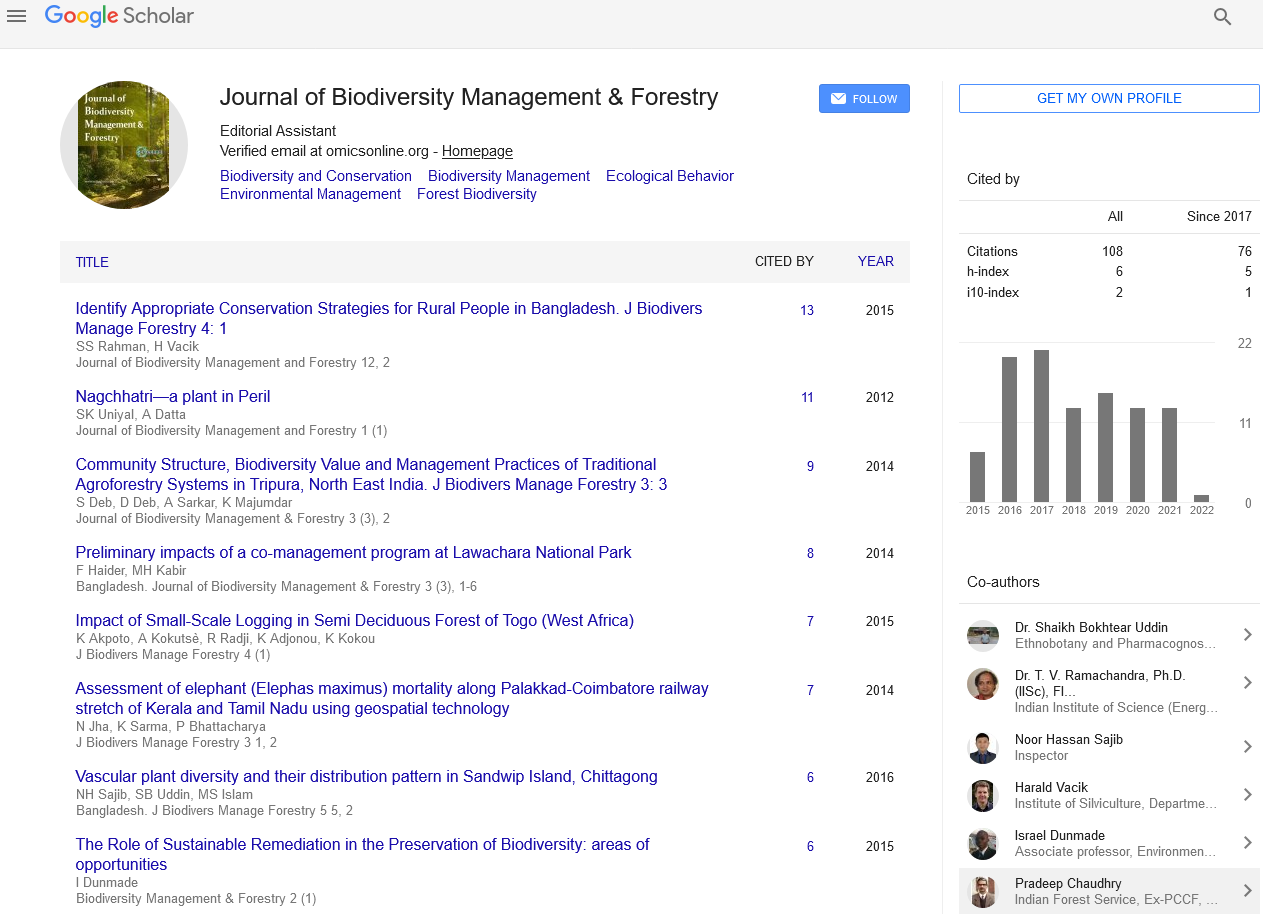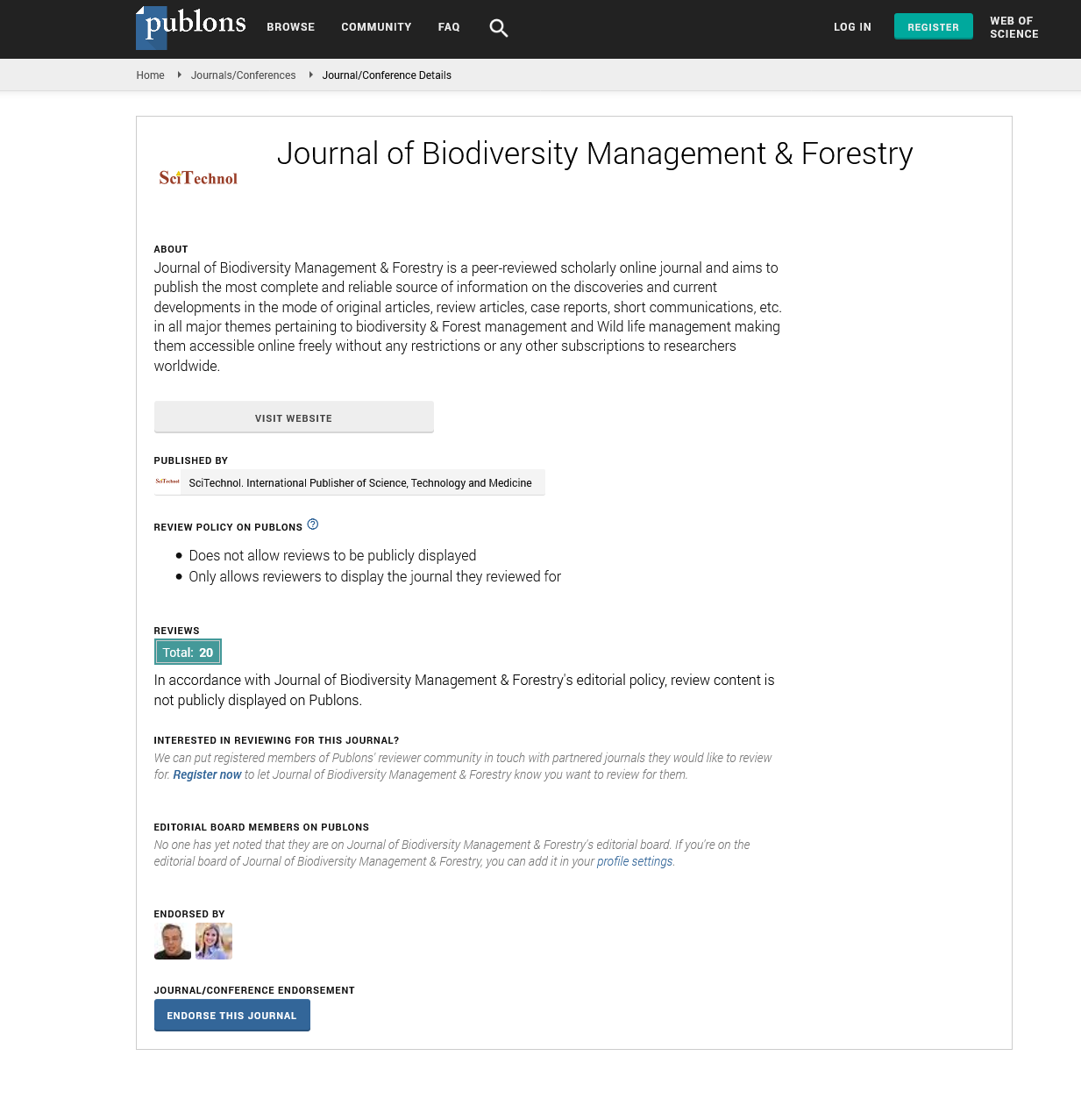Research Article, J Biodivers Manage Forestry Vol: 6 Issue: 1
Assessing Policy Gaps towards Implementing Participatory Forest Management: The Case of Bale Eco-Region,Southeastern Ethiopia
| Endalew Muluneh Amena*, Lemma Tiki Ydeta and Gonfa Kewessa |
| School of Biodiversity and Natural Resources, Madda Walabu University, Bale Robe, Oromia region, Ethiopia |
| Corresponding author : Endalew Muluneh Amena School of Biodiversity and Natural Resources, Madda Walabu University, Bale Robe, Oromia region, Ethiopia Tel: 0933625623 E-mail: endukomuluneh@gmail.com |
| Received: January 23, 2017 Accepted: February 02, 2017 Published: February 09, 2017 |
| Citation: Amena EM, Ydeta LT, Kewessa G (2017) Assessing Policy Gaps towards Implementing Participatory Forest Management: The Case of Bale Eco- Region, Southeastern Ethiopia. J Biodivers Manage Forestry 6:1. doi: 10.4172/2327-4417.1000174 |
Abstract
This research was aimed to identify the gap in effective implementation of participatory forest management. At same time, the research was initiated to examine the perception of rural farmers and others stakeholders towards the successful participatory forest management in terms of the existing policy and their strategic implementation in Bale Zone. Three woredas (districts), namely Dellomena, Harena Bulluk and Goba, were purposively selected by simple ground since they are the pilot woredas where participatory forest management have been experienced and practiced. From each woredas, two kebeles were selected from each woredas with the same criteria. Data was collected from both primary and secondary sources. Primary data was collected through face to face interview and focus group discussion. Secondary data was obtained through review of woredas reports, participatory forest management plans and policy documents. Descriptive and inferential statistics were used and supported by ordered logistic regression analysis to analyze the data quantitatively. The study revealed that participatory forest management was not satisfactory due to poor implementation of benefit sharing strategies and rent seeking behavior of government officials at all levels. In Harena Buluk and Delomena woredas, the majority of the respondents replied as they were satisfied with PFM regardless of the poor existing law enforcement in effective PFM implementation. In general, it can be concluded that the policy framework /strategies as well as the policy implementation tools (rules and regulations) are attractive. The only problem reported as gap of the existing law and PFM implementing strategies is that high level of punishment which put an existing Federal and Oromia forest proclamation sometimes hard to implement in educating and punishing wrong doers. The main problem with effective implementation of PFM is poor enforcement of rules and regulation which was the consequence of rent seeking behavior, poor commitment and poor implementation capacity of government officials. Amendment of existing forest proclamation, hard work and significant attention to implement benefit sharing strategies particularly in Gobaworeda improve forest income via carbon trading, payment for ecosystem services and watershed protection so as to improve the impact of PFM on livelihoods are some of the way forward.
 Spanish
Spanish  Chinese
Chinese  Russian
Russian  German
German  French
French  Japanese
Japanese  Portuguese
Portuguese  Hindi
Hindi 
